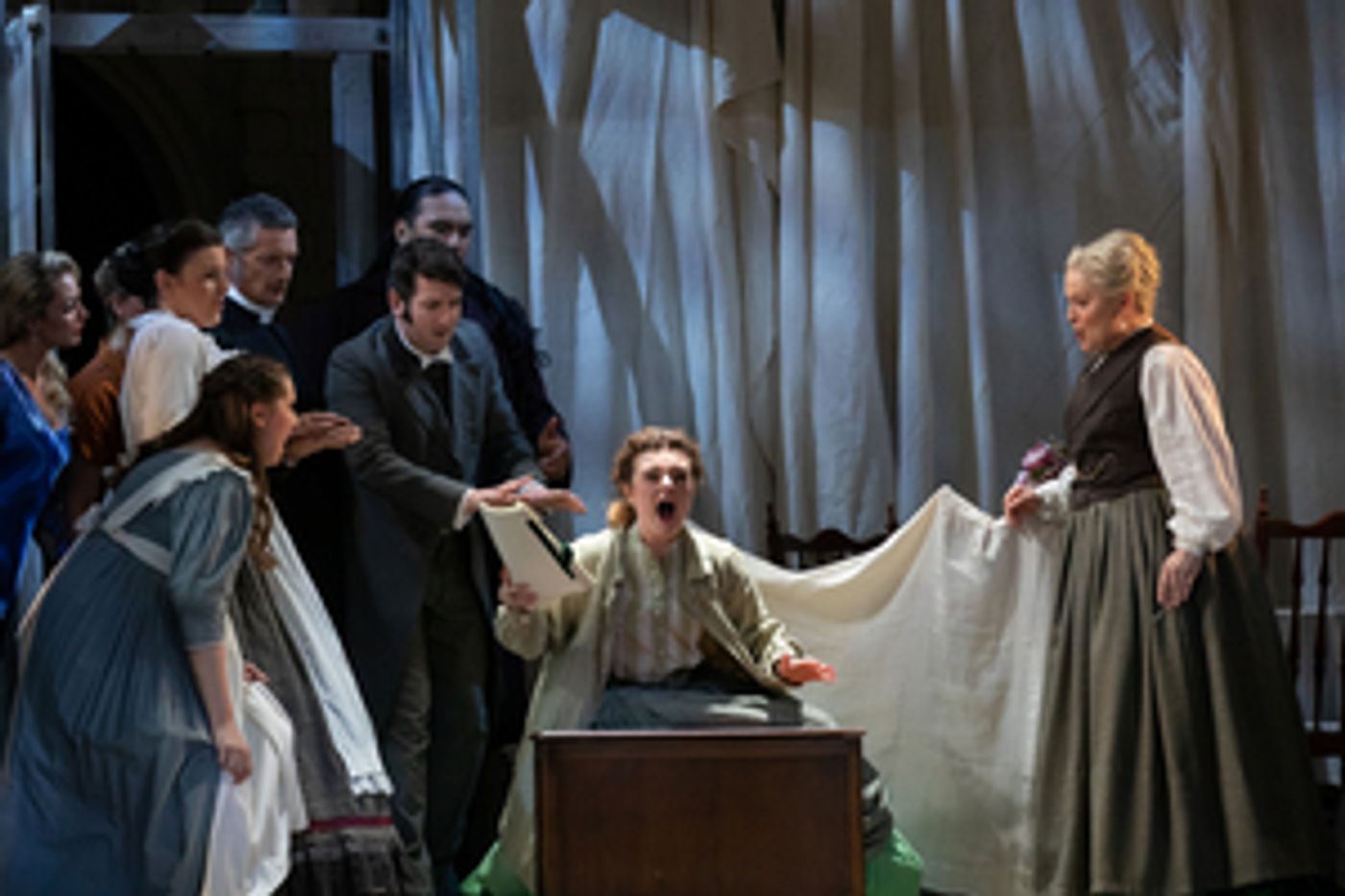Review: LITTLE WOMEN, Opera Holland Park
American opera based on beloved novel gets its UK premiere

 Women, as women have done for 150 years, pick up a copy of the novel Little Women and retire to read it. We catch on that these specific women are avatars for Jo, Meg, Amy and Beth, the eponymous March sisters, but they sit in picture frames, each suggesting a woman portrayed - I spotted Joan of Arc, and a John Singer Sargent socialite in a bias cut dress. They are our chorus and they reflect the decisions the sisters take, illustrating and enhancing each impacts. As at Ruddigore, they can walk out of the frames if they wish - like the girls who move out of their beloved family home.
Women, as women have done for 150 years, pick up a copy of the novel Little Women and retire to read it. We catch on that these specific women are avatars for Jo, Meg, Amy and Beth, the eponymous March sisters, but they sit in picture frames, each suggesting a woman portrayed - I spotted Joan of Arc, and a John Singer Sargent socialite in a bias cut dress. They are our chorus and they reflect the decisions the sisters take, illustrating and enhancing each impacts. As at Ruddigore, they can walk out of the frames if they wish - like the girls who move out of their beloved family home.
Right from the get-go, it's clear that director, Ella Marchment, will be telling the two stories: the sisterhood of the four Marchs and the broader sisterhood of the novel's readers. They have (for generations) have found empathetic role models in Louisa May Alcott's classic work and a voice in a world in which they have often been shouted down, these days online as much as offline. Though Mark Adamo wrote this opera at the end of the 20th century, it feels relevant, urgent and very 21st century on this, its UK premiere.
Charlotte Badham captures Jo's headstrong nature, her commitment to her family outranking even her own romantic possibilities, her adolescent arrogance on show as she seeks to undermine Meg's match with John Brooke. That pairing is not ideal, but surely both deserve more sympathy than that offered to them, even in the harsh environment of the 19th century marriage market. Badham is a charismatic Jo, but often cruel and hard to like - nevertheless, she is her own woman at a time (well, any time really) when that was a feat in itself. Badham is an Opera Holland Park Young Artist alumna, but her singing doesn't always reach above the orchestra in a very demanding role delivered in an outdoors space that isn't always sympathetic to anything less than the most powerful voices.
Her rejected suitor, Laurie, is given real pathos by Frederick Jones, torn by the rejection of the childhood friend whom he once loved as a playmate and rare intellectual equal and now intends to love as a woman. It's in these traumatic moments that Sian Edwards' conducting extracts the pain that weaves in and out of the score, the City of London Sinfonia sometimes illustrating, sometimes leading, but never following the emotions on stage.
Lucy Schaufer and Benson Wilson shine in cameo roles as the wealthy and judgemental Aunt Cecilia and the erudite Professor Bhaer. Badham and Wilson get the best scene in the whole opera, when Bhaer leavens his criticism of Jo's sensationalist stories by gently introducing Goethe and translating his German romanticism into English for her - not that she wasn't smart enough to cotton on to his meaning first time round...
There's a lot of turning back time (the action takes place in flashback after the framing prologue) and a key plot point involving a man 'settling' for the younger sister when rejected by the brighter, stubborn elder. I cannot have been alone in wondering if Lin Manuel Miranda took some inspiration from those scenes when writing the Schuyler sisters signature scene in Hamilton.
If the action dips a little towards the interval - do wrap up warm as the sun is going down at the same time - the second half recovers momentum and we are treated to excellent harmonies (of which it's a shame that there isn't more) and a more active role for the chorus. The ending - never easy in any adaptation of this novel - leaves us with a little skip in our step as Jo's self-imposed isolation (a little like that of poor Sonya in Uncle Vanya) looks unlikely to last much longer.
Opera Holland Park, more sustainability conscious post-pandemic, has made a bold choice in programming a work new to this country, even if it comes with accolades from abroad and a "You've read the book, seen the film, now see the opera" (unstated, of course) strapline. Not everyone will enjoy it (some around me retreated from the cold at the break) but it's an evening full of rewards, musical and intellectual, a long way from the lazy stereotype of Little Women as a novel for teenage girls finding themselves in bookish Jo, pretty Meg, doomed Beth and charming Amy.
Little Women is at Opera Holland Park until 5 August
Photo Credit: Ali Wright
Reader Reviews
Videos

